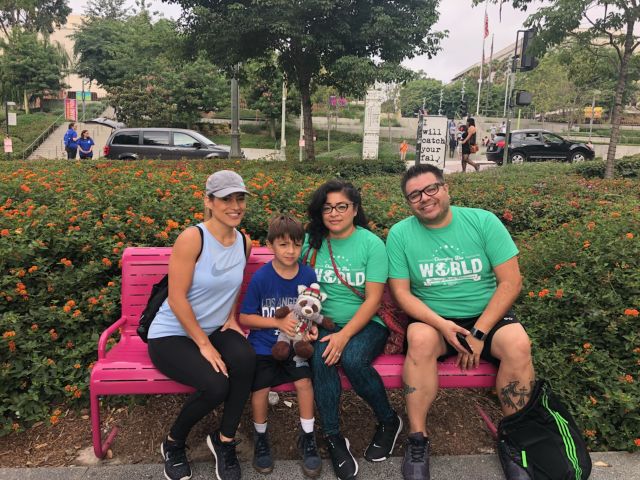Mental health, an unspoken subject by so many but the reality is, each year millions of Americans face the matter of living with a mental health condition. Whether we struggle with it ourselves or we are indirectly affected through family members, platonic or professional relationships we should all be involved in the conversation surrounding mental health. Not only is our Family Well Being Department involved in the conversation, but we are working diligently to break the stigma and raise awareness about the reality of mental health.
On October 6, 2018 members of our Family Well Being Team participated in the National Alliance on Mental Illness (NAMI) 5K to raise funds and promote awareness of mental health. Research shows that one in five Americans are affected by a mental health condition. Although the occurrence is fairly common, the stigma surrounding the topic of mental health is toxic and creates an environment of shame, fear and silence. This unhealthy behavior prevents many people from seeking support and treatment.
 With the help of our Family Well Being Department we want to change the perception of living with a mental health condition. Part of that change is clarifying that mental health conditions are just that, conditions not illnesses. A huge proponent of shifting the conversation is altering the language around the subject, how we treat and talk to those dealing with it.
With the help of our Family Well Being Department we want to change the perception of living with a mental health condition. Part of that change is clarifying that mental health conditions are just that, conditions not illnesses. A huge proponent of shifting the conversation is altering the language around the subject, how we treat and talk to those dealing with it.
Here are some tips from NAMI on how to help someone with a mental health condition:
- Talk to them in a space that is comfortable, where you won’t likely be interrupted and where there are likely minimal distractions.
- Ease into the conversation, gradually. It may be that the person is not in a place to talk, and that is OK. Greeting them and extending a gentle kindness can go a long way. Sometimes less is more.
- Be sure to speak in a relaxed and calm manner.
- Communicate in a straightforward manner and stick to one topic at a time.
- Be respectful, compassionate and empathetic to their feelings by engaging in reflective listening, such as “I hear that you are having a bad day today. Yes, some days are certainly more challenging than others. I understand.”
- Instead of directing the conversation at them with ‘you’ statements, use ‘I’ statements instead.
- Be a good listener, be responsive and make eye contact with a caring approach.
Things to Avoid Saying:
- “Just pray about it.”
- “You just need to change your attitude.”
- “Stop harping on the negative, you should just start living.”
- “Everyone feels that way sometimes.”
• “You have the same illness as my (whoever).” - “Yes, we all feel a little crazy now and then.”
Things to Avoid Doing:
- Criticizing blaming or raising your voice at them.
- Talking too much, too rapidly, too loudly. Silence and pauses are ok.
- Showing any form of hostility towards them.
- Assuming things about them or their situation.
- Being sarcastic or making jokes about their condition.
- Patronizing them or saying anything condescending.
If you would like to learn more about our Family Well Being Division, please contact Rosario Williams.
Additional Resources:
NAMI – The nation’s largest grassroots mental health organization dedicated to building better lives for the millions of Americans affected by mental illness.
Los Angeles County Department of Mental Health – The largest county-operated mental health department in the United States, directly operating programs in more than 85 sites and providing services through contract programs.
San Bernardino County Behavioral Health – A network of facilities providing mental health services including crisis intervention, assessment/referral, individual/group therapy, medication support, case management, drug/alcohol and psycho-educational workshops. Services are provided for children, youth, adults and older adults.
Mental Health America – The nation’s leading community-based nonprofit dedicated to addressing the needs of those living with mental illness and to promoting the overall mental health of all Americans.


